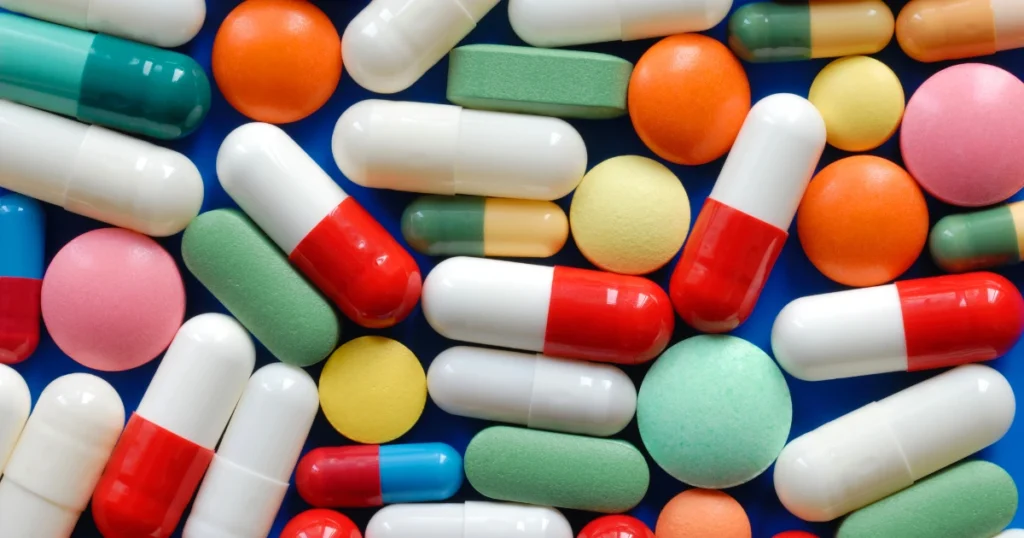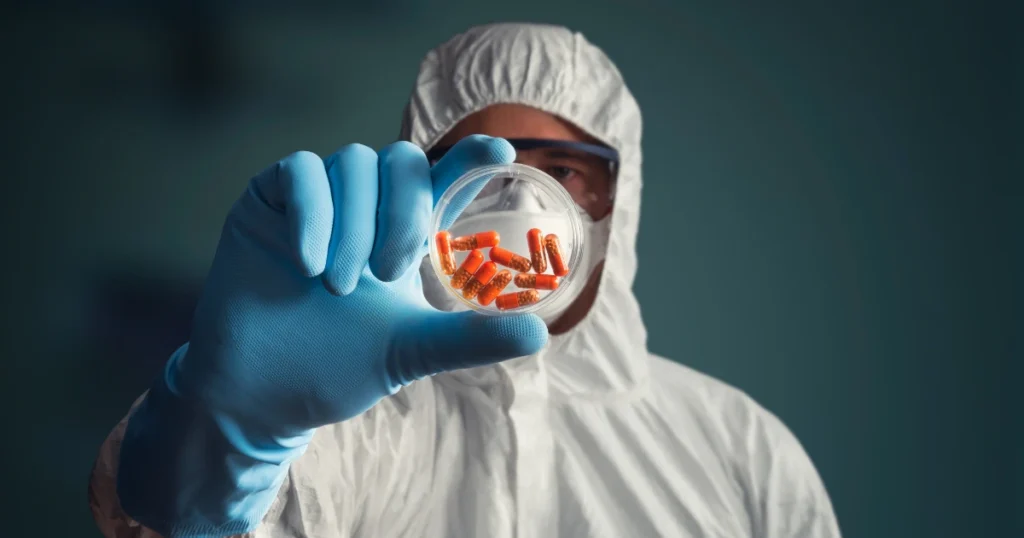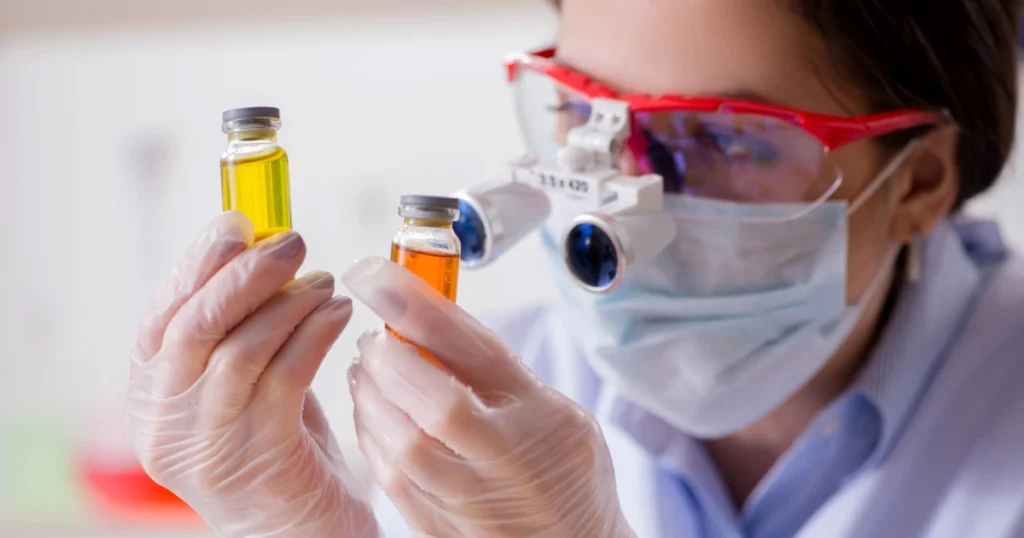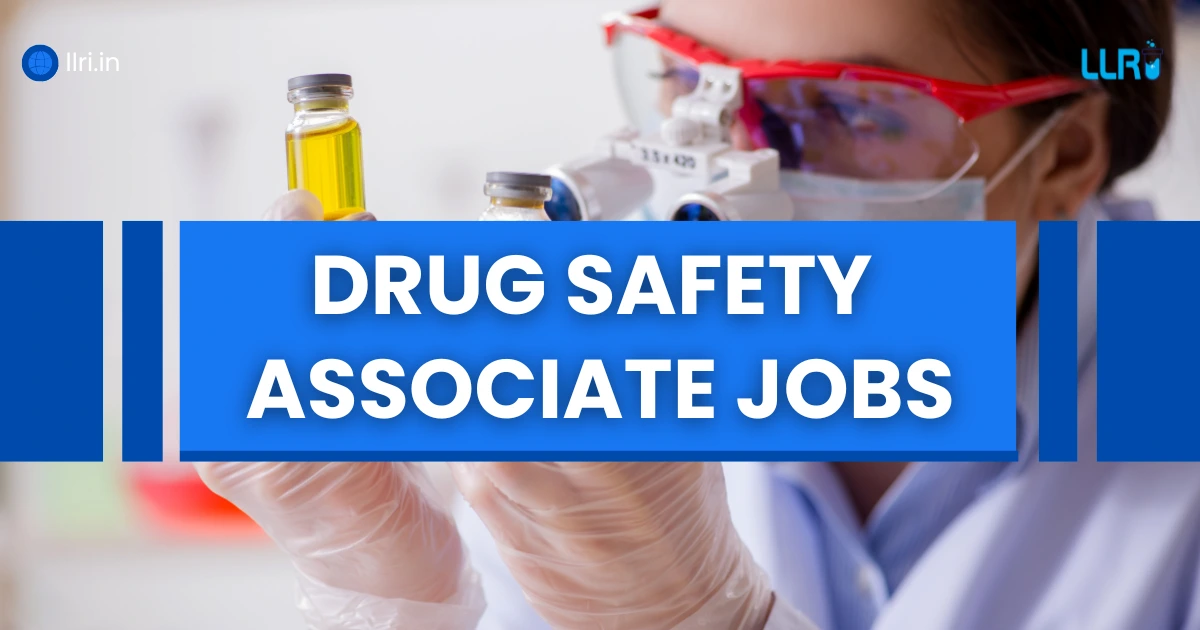Drug Safety Associate Jobs: If you are someone interested in the pharmaceutical or healthcare industry, you may have already heard about drug safety associate jobs. These roles are becoming increasingly important in India and worldwide…
So, why is this role becoming so important? Think about it – every time a new medicine is introduced, millions of patients across the world start using it. While clinical trials test these drugs before approval, it is impossible to predict every single side effect in advance. That’s where drug safety associates come in. They play an important role in identifying, recording, and reporting adverse drug reactions.
Check out our informative video on Adverse Drug Reactions!
In other words, they ensure that medicines remain safe for patients even after approval. And this blog will give you a clear picture of drug safety associate jobs: what they involve, what qualifications you need, the kind of interview questions to expect, and the opportunities available in India.
We will also highlight how Learning Labb Research Institute (LLRI), a leading, ISO-certified clinical research institute, can help you gain the right skills and training through its Clinical Research Courses. Whether you are a student, a recent graduate, or someone exploring a career switch, this guide will help you understand how to build your career in pharmacovigilance.

What Does a Drug Safety Associate Do?
One of the most common questions asked by students is – what does a drug safety associate do? A Drug Safety Associate (DSA) plays an entry-level but highly valued role in pharmacovigilance.
Their main responsibility is to monitor and track the safety of pharmaceutical products once they are on the market. This includes collecting and analyzing adverse event reports, following international drug safety guidelines, and reporting potential risks to regulatory authorities and healthcare professionals.
If you are working as a DSA, you are the first line of defense in protecting patients from harmful drug reactions. Drug safety associates are the unsung heroes of the pharmaceutical industry, silently working to protect millions of patients worldwide.
Read More: Best 10+ Clinical SAS Interview Questions For Freshers
Drug Safety Associate Job Description
Before applying for this role, students often search for the drug safety associate job description. This helps them understand what is expected from them in a real-world setting. Below are the key responsibilities:
- Adverse Event (AE) monitoring: Collecting, evaluating, and analyzing data from adverse event reports (AERs).
- Regulatory compliance: Following global drug safety regulations like ICH guidelines.
- Database management: Maintaining drug safety databases such as ARGUS.
- Reporting: Writing narratives and reports related to drug safety.
- Communication: Interacting with healthcare professionals, regulators like FDA/EMA, and other stakeholders.
- Quality control: Performing checks on reports prepared by other safety staff.
- Cross-functional collaboration: Working with medical directors, safety physicians, and research teams.
These responsibilities make the drug safety associate jobs highly suitable for graduates in life sciences, pharmacy, nursing, or allied healthcare fields.
Qualifications and Skills Required
If you are aiming to enter this field, you must be wondering – what is the role of drug safety associate and what skills are required? Let us break it down:
- Education: A bachelor’s degree in Pharmacy, Life Sciences, Nursing, or Pharmacology.
- Attention to detail: Accuracy is very important when handling safety data.
- Analytical skills: Ability to evaluate reports and identify safety signals.
- Technical knowledge: Familiarity with databases like ARGUS and tools like Microsoft Office.
- Communication skills: Written and verbal communication is essential.
- Teamwork: Ability to work both independently and as part of a team.

Drug Safety Associate Interview Questions and Answers
Preparing for interviews is often the toughest part of starting a career. Students preparing for drug safety associate interview questions and answers should keep the following in mind:
- Q1: What does a drug safety associate do?
- A Drug Safety Associate monitors drug safety, collects and analyzes adverse event reports, and ensures compliance with regulations.
- Q2: What is the role of drug safety associate in pharmacovigilance?
- They ensure that drugs on the market are safe for patients by tracking and reporting side effects.
- Q3: What kind of databases are used in drug safety?
- Databases like ARGUS and ARISg are commonly used.
- Q4: Why is pharmacovigilance important?
- Because it protects patients by detecting risks early and preventing harm.
- Q5: Can you describe an adverse event report?
- It includes details like patient information, drug involved, adverse reaction, and seriousness of the event.
These are some commonly asked drug safety associate interview questions and answers that will help you prepare better.
Career Progression in Drug Safety
Many students worry if drug safety associate jobs offer long-term career growth. The answer is yes. Here is a clear path of how careers progress:
- Entry-level roles: Focus on data entry, basic reporting, and case handling.
- Senior roles: Complex case assessment, team leadership, and signal detection.
- Related roles: Transition to roles like Medical Writer, Regulatory Affairs Specialist, or Clinical Research Associate.
Types of Job Titles in Drug Safety
Apart from being a Drug Safety Associate, candidates can also explore other roles in the same career track:
- Pharmacovigilance Services Associate: Handles case processing, MedDRA coding, and report submissions.
- Clinical Research Associate (CRA): Manages clinical trials and ensures safety of participants.
- Regulatory Affairs Specialist: Prepares documents for drug approval and reporting.
- Safety Specialist / Senior Safety Specialist: Takes broader responsibility for drug safety processes.
- Medical Reviewer: Prepares aggregate reports for regulatory submission.
Each of these roles comes with unique responsibilities but stays connected with the central idea of drug safety.
Drug Safety Associate Jobs in Bangalore
India is becoming a major hub for clinical research and pharmacovigilance. If you are searching for drug safety associate jobs in Bangalore, you will find several opportunities in global pharmaceutical companies, CROs, and clinical research organizations. Bangalore is home to many multinational companies and is considered the Silicon Valley of India, making it one of the best places to start a career in this field.
Other cities like Hyderabad, Pune, and Mumbai are also offering increasing numbers of jobs in pharmacovigilance.

Why Choose LLRI for Your Clinical Research Training?
While Learning Labb Research Institute (LLRI) does not have a dedicated Pharmacovigilance course, pharmacovigilance is an important part of the Clinical Research Courses it offers. If you are looking to build a strong foundation for drug safety associate jobs, LLRI is one of the best places to start.
Courses at LLRI:
- Pro Advanced Diploma in Clinical Research (7 Months): Includes Clinical Research, Pharmacovigilance, Clinical Data Management, Regulatory Affairs, Medical Writing, and a free 1-month Clinical SAS training.
- Advanced Diploma in Clinical Research (7 Months): Focuses on Clinical Research, Pharmacovigilance, Clinical Data Management, Regulatory Affairs, and Medical Writing.
- Diploma in Clinical Research (5 Months): Offers training in Clinical Research, Pharmacovigilance, Clinical Data Management, Regulatory Affairs, and Medical Writing.
These programs combine technical learning with 2 months of corporate training, making students industry-ready. If you are searching for a clinical research training center with job placement support, LLRI offers an excellent platform.
Benefits of Choosing LLRI
- Industry-relevant modules: Covering everything from pharmacovigilance to medical writing.
- Placement support: Students get assistance in interviews and placement drives.
- Corporate training: Practical exposure to industry requirements.
- Affordable clinical research course fees: Compared to many other institutes, LLRI offers pocket-friendly course structures.
- Recognition: Known as one of the best institute for PG Diploma in Clinical Research in India.
If you are exploring clinical research courses in Bangalore with 100% placement support, LLRI stands out as a trusted choice.
On A Final Note…
The field of pharmacovigilance is growing rapidly, and drug safety associate jobs are one of the best entry-level positions to start your journey. If you are a science graduate wondering what is the role of drug safety associate, the answer is clear – it is about protecting patient safety, building a career with growth, and contributing to the healthcare industry in a meaningful way.
At the same time, preparing for drug safety associate interview questions and answers and pursuing training from a reputed clinical research training center like LLRI can give you the competitive edge you need.
As the saying goes, “Safety of the patient comes first, always.” By choosing this career, you are not only building your future but also safeguarding the health of millions. So, if you are ready to step into this exciting career, explore LLRI’s Clinical Research Courses today and take the first step towards your journey in pharmacovigilance and beyond.
FAQs
Q1: What is the job of a drug safety associate?
A Drug Safety Associate is responsible for monitoring, recording, and analyzing adverse drug reactions. They ensure compliance with global regulations and prepare safety reports to maintain patient safety.
Q2: What is the salary of a drug safety associate in TCS?
On average, a drug safety associate in TCS can earn between INR 3.2 LPA to INR 5 LPA depending on experience and location.
Q3: What is DSA in pharma?
DSA in pharma stands for Drug Safety Associate. It is an entry-level role in pharmacovigilance focusing on drug safety monitoring.
Q4: What is the salary of Drug Safety Associate II in Parexel?
A Drug Safety Associate II at Parexel can earn around INR 5 LPA to INR 7.5 LPA, depending on experience.
Q5: Which is better, CDM or PV?
Both Clinical Data Management (CDM) and Pharmacovigilance (PV) are rewarding careers. CDM focuses more on managing clinical trial data, while PV focuses on monitoring drug safety. The better choice depends on your career interest – data management or patient safety.

